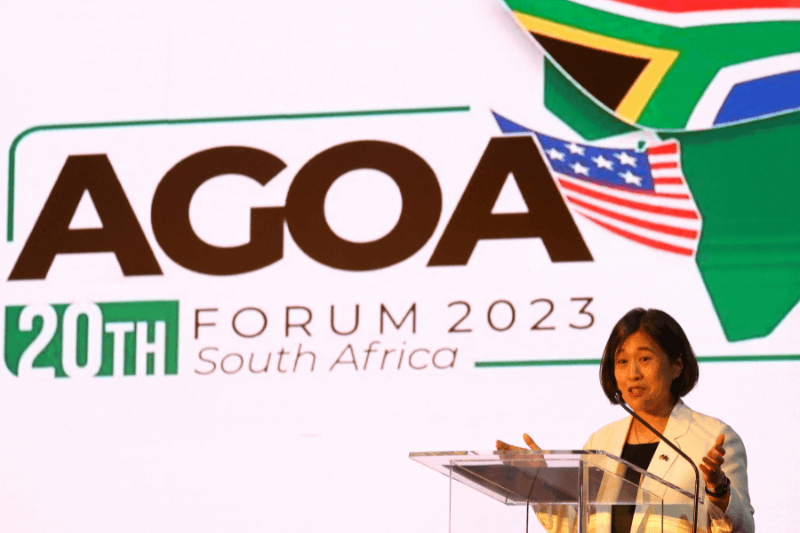Last updated on November 6th, 2023 at 10:09 am
In a significant step toward bolstering economic partnerships with Africa, U.S. Trade Representative Katherine Tai has announced ambitious plans to reinvigorate the African Growth and Opportunity Act (AGOA). This two-decade-old duty-free initiative, set to expire in September 2025, is undergoing a much-anticipated makeover that aims to enhance its effectiveness and utility.
AGOA has been instrumental in providing duty-free access to the U.S. market for qualifying African countries, resulting in over $10 billion worth of African exports to the United States in the past year. However, growing concerns about its limited effectiveness have catalyzed discussions to make this trade program even more beneficial.
How AGOA is renewed?
Katherine Tai, fresh from her three-day talks with African trade ministers in Johannesburg, expressed the United States’ aspiration for AGOA to evolve beyond symbolism and become a more practical and efficient trade program. The focus is now on improving AGOA’s utilization by qualifying countries and aligning it with the recently established African Continental Free Trade Area.
While the Biden administration is pushing for changes during the renewal process, some African nations are advocating for a straightforward 10-year extension, believing that improvements can be made post-reauthorization. These differing viewpoints have sparked deliberations and potential challenges in the U.S. Congress.
Keep Reading
AGOA enjoys bipartisan support among U.S. lawmakers, who recognize its importance in countering China’s influence in Africa. However, divisions persist over the necessity of updates, creating a unique policy dilemma.
American Businesses and African Enterprises Alike
As the fate of AGOA remains uncertain, American businesses are urging for its swift reauthorization to reduce reliance on Chinese manufacturing. An early reauthorization has the potential to reignite investments that have temporarily been on hold, according to South African Trade Minister Ebrahim Patel.
While some members of the U.S. Congress support AGOA’s renewal, the ongoing political gridlock raises concerns about its prioritization on the legislative agenda. Nonetheless, the negotiations for a revamped AGOA underscore the vital role it plays in U.S.-Africa trade relations and the potential for a more effective and mutually beneficial future.

